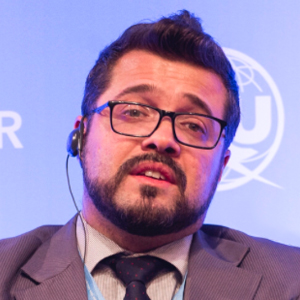
 Interviewee:
Interviewee:
Abraão Balbino e Silva, Competition Superintendent, Anatel
What you will learn in this audiocast (15min 25sec):
The huge territory and widely dispersed populations of Brazil place many challenges on telecom deployment. In order to stimulate broadband rollout in the country, novel approaches to regulation have been tried. These include a careful definition of areas requiring direct subsidy and those that could potentially be profitably served by so called Small Providers, essentially very small service providers responsible for their own infrastructure often sited in local communities.
The results have so far been impressive with an estimated 10,000 providers started in the country. The regulator ensures cooperation between providers and major operators in order to secure reliable backhaul. Local communities in many cases feel they “own” their service provider.
Other regulatory innovations concern the development of a potentially symbiotic relationship between OTTs and telcos, particularly in terms of community service provision. OTTs have also begun joint ventures with service providers.
- The existing broadband landscape in Brazil
- The segmentation Brazil has made to determine potentially competitive areas for broadband
- The regulatory framework surrounding the so called Small Providers
- Emerging regulatory policies to deal with the developing marketplace
- The regulatory oversight in the telco/small provider relationship
- Regulatory attitudes and the emerging telco/OTT relationship
- The prospects for 5G in Brazil
- Conclusions
Abraão Balbino e Silva was born in Brasilia, Brazil. He is currently the Competition Superintendent of National Telecommunications Agency, Anatel. He is responsible for the economic regulation of the ICT sector in Brazil, including the competition policy, prices, costs, and the monitoring of the economic issues involved. In ITU-T, he is Vice-Chair of the ITU-T SG3 and the WP2/3 Chairman, related to general economic and policy factors related to provision and cost of ICT services.
He has authored several publications since 2004. In 2016, he was a co-author of the book Broadband in Brazil: past, present and future. In 2011, he was the winner of the SEAE Award for Economic Regulation, with the text Remuneration of Mobile Telephony Networks.
Before joining Anatel, Abraão worked in the private sector as Project Manager in Huawei Technologies and as a Marketing Analyst in Vivo Celular. He is a communication network engineer and holds a Master in Regulation and Business Management from the University of Brasília – UnB.




